West Virginia state (USA)
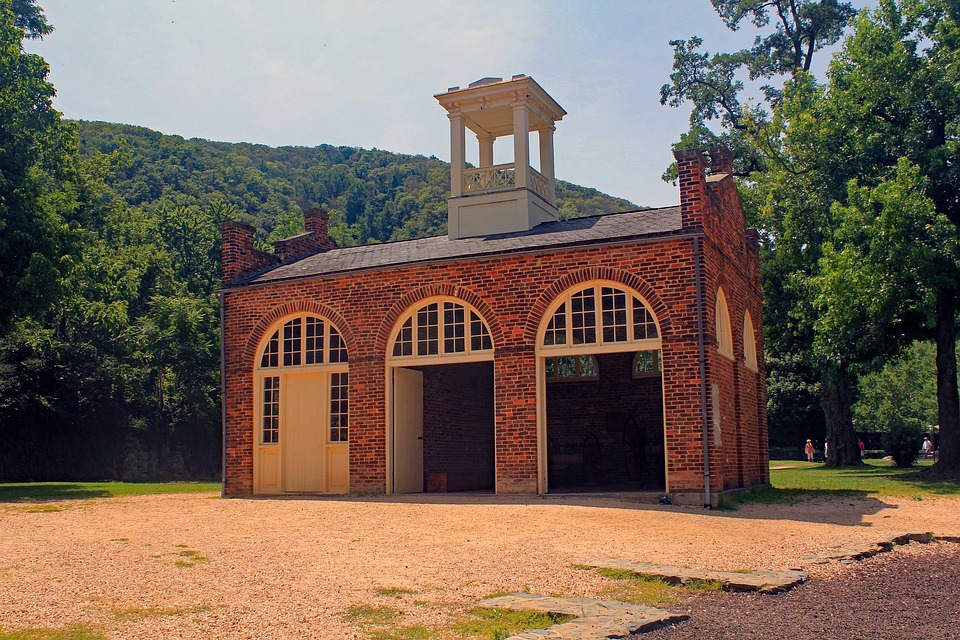
Location
West Virginia is located in the eastern United States, covering an area of 62,755 km². The state borders Virginia to the southeast, Kentucky to the southwest, Ohio to the northwest, and Pennsylvania and Maryland to the northeast. Due to its mountainous terrain, West Virginia has earned the nickname “The Mountain State.” The Ohio River forms a significant part of the state’s western boundary, while the Appalachian Mountains stretch across much of the region.
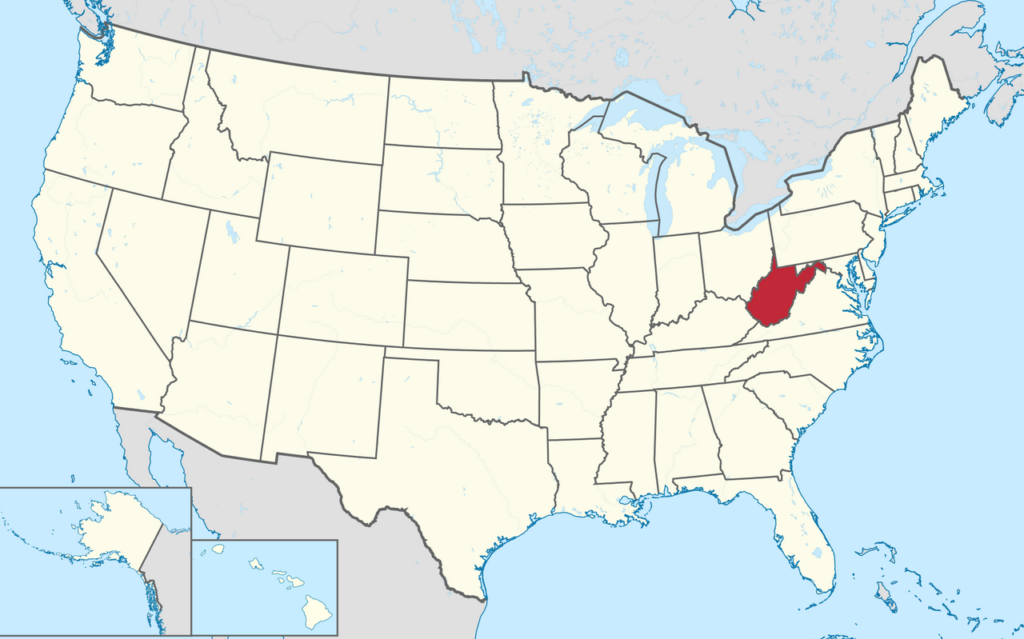
- Capital and largest city: Charleston
- Other major cities: Huntington, Morgantown, Parkersburg
West Virginia offers breathtaking scenic views and preserves a unique culture that blends southern and eastern mountain traditions.
Climate and Landscape
West Virginia is renowned for its temperate climate with four distinct seasons. The mountainous terrain significantly influences weather conditions, creating diverse microclimates across the state.
- Winter: Temperatures typically range from -5°C to +5°C. Mountain regions receive substantial snowfall, making them ideal for winter sports such as skiing and snowboarding.
- Spring: Marked by blooming wildflowers and moderate rainfall, temperatures rise to +10°C – +20°C.
- Summer: Warm and humid, with temperatures between +20°C and +30°C. Evenings in the mountains often remain cool.
- Autumn: Brings crisp weather and spectacular foliage. Temperatures range from +10°C to +20°C.
Landscape
West Virginia is almost entirely covered by mountains and forests, making it a natural haven for outdoor enthusiasts.
- Mountains and Ridges
- The Appalachian Mountains dominate the state.
- Highest point: Spruce Knob (1,482 m).
- Picturesque valleys are home to small villages and farms.
- Rivers and Lakes
- The Ohio River forms the western boundary, offering opportunities for fishing, kayaking, and other water sports.
- Other major rivers: Potomac, Kanawha, New River.
- Artificial lakes like Sutton Lake and Summersville Lake are popular recreational spots.
- National Parks and Forests
- George Washington and Jefferson National Forests extend into the state.
- New River Gorge National Park is famous for its canyons, bridges, and rock formations.
Natural Features
- Known as the “greenest state,” West Virginia boasts over 75% forest cover.
- A wide array of rare flora and fauna, including black bears, foxes, and salamanders.
- Caves like Seneca Caverns attract visitors with stalactites and unique underground landscapes.
The natural beauty of West Virginia makes it perfect for hiking, rock climbing, camping, and photography.
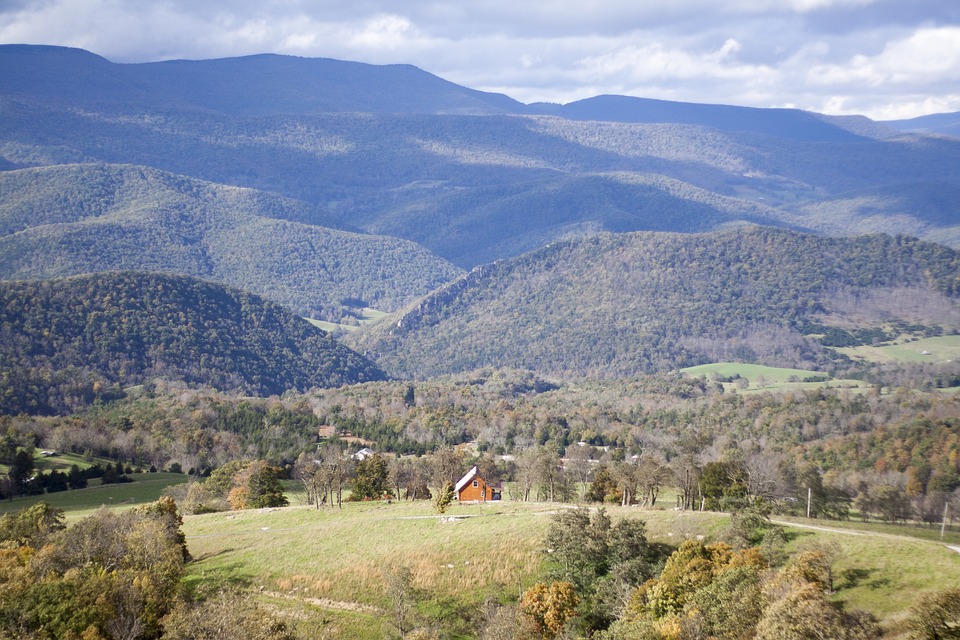
Population
West Virginia is one of the least densely populated states in the USA, but its communities are known for their hospitality and rich cultural heritage. According to the latest census, the population is approximately 1.76 million, making it the 38th most populous state in the country.
Population Distribution:
- Ethnic Composition:
- White: 92%
- African American: 3.6%
- Latino: 1.7%
- Asian: 0.8%
- Other ethnic groups: 1.9%
- Age Composition:
- Children and teenagers (under 18): 20%
- Working-age adults (18-65): 58%
- Seniors (65+): 22%
- Urban and Rural Population:
Approximately 48% of residents live in small towns and villages. West Virginia has one of the highest proportions of rural population in the USA, helping to preserve traditional ways of life.
Crime
The crime rate in West Virginia is considered one of the lowest among U.S. states, making it a relatively safe place to live and work. According to statistics, the violent crime rate in the state is approximately 317 incidents per 100,000 people, which is below the national average.
Small towns and rural areas are especially notable for their low crime rates, as their tight-knit communities foster a sense of mutual trust and security. This creates a safe environment, particularly for families with children.
However, in larger cities like Charleston and Huntington, crime rates can be higher than the state average. The main issues are related to illegal drug trafficking, a widespread problem across the country. Despite this, local authorities are actively working to improve the situation by increasing funding for law enforcement and introducing social programs.
A distinctive feature of crime prevention efforts is the involvement of local citizens. West Virginia residents often form neighborhood organizations to monitor safety in their communities, helping the police respond more effectively to incidents.
Overall, by avoiding certain problematic areas in larger cities, West Virginia remains one of the safest states, where people feel secure both in their homes and in public spaces.
Economy
West Virginia has a mixed economy, with leading industries including resource extraction, manufacturing, agriculture, and tourism. Despite challenges, the state is actively working on diversifying its economy by attracting investments and creating new jobs.
Key Economic Sectors:
- Natural Resource Extraction
- West Virginia is a U.S. leader in coal mining, which remains a primary energy source in the region.
- The extraction of natural gas and shale oil is becoming increasingly important due to modern technologies.
- Manufacturing
- The state has a strong manufacturing sector, particularly in chemical production, metalworking, and electronics.
- Developed industries include wood processing and furniture production.
- Agriculture
- Major products: corn, soybeans, potatoes, tobacco.
- Growth in meat and dairy industries, as well as fruit cultivation (especially apples and peaches).
- Tourism
- The state is famous for its national parks, mountain trails, and recreational areas. Tourism contributes millions of dollars to the state budget annually.
- Top tourist destinations: New River Gorge Park, Spruce Knob, Appalachian hiking trails.
Economic Indicators:
- Minimum Wage: $8.75 per hour, one of the lowest in the U.S.
- Unemployment Rate: 4.6% (as of 2023), close to the national average.
- Poverty Rate: 16%, higher than the U.S. average, particularly in rural areas.
West Virginia for Business
West Virginia offers a favorable environment for business development, especially for small enterprises and industries reliant on natural resources or agriculture. The state actively attracts investors through low operating costs, an affordable workforce, and tax incentives aimed at boosting the economy.
Tax System:
- Corporate Income Tax:
- The corporate income tax rate is 6.5%, which is average for the U.S.
- Sales Tax:
- The sales tax rate is 6%, with local taxes adding up to 1%.
- Property Tax:
- One of the lowest in the U.S. The average rate is around 0.59%, making it appealing for business owners renting or purchasing property.
- Business Incentives:
- The state offers tax credits for industries like coal mining, manufacturing, and green energy.
- Additional incentives for companies creating jobs in rural areas.
Prominent Companies and Their Operations in the State:
- Marshall University (Huntington): A hub for startups in the tech sector.
- Consulting and IT Companies: Small firms providing outsourcing services to neighboring states.
- Energy and Mining: Companies like Alpha Natural Resources and Arch Resources are major players in coal mining.
- Tourism: Local businesses supporting national parks and recreational areas attract both domestic and international tourists.
Advantages of Doing Business in West Virginia:
- Low Operating Costs: Affordable office space, property rentals, and labor.
- State Support: Incentive programs for small businesses.
- Resource Accessibility: Especially beneficial for manufacturing and resource-extraction industries.
- Low Competition: Less market saturation compared to major metropolitan areas.
Risks of Starting a Business:
- Limited Market Size: Small market due to low population density.
- Dependence on Natural Resources: The economy heavily relies on coal and gas, which can cause instability during environmental or market shifts.
- Youth Outmigration: Many young professionals move to other states, reducing access to a skilled workforce.
- Logistical Challenges: The mountainous terrain can lead to higher transportation costs compared to flatter regions.
West Virginia can be an ideal location for businesses focusing on local needs or resources, but careful evaluation of risks and market accessibility is essential before starting.
Real Estate
The real estate market in West Virginia is known for its affordability, especially compared to other U.S. states. Low housing costs, whether for rental or ownership, make the state attractive to young families, retirees, and those seeking cost-effective living or investment options.
Rental Properties
- Average Rental Prices:
- One-bedroom apartments: $600–$850 per month.
- Homes with two or more bedrooms: $900–$1,200 per month.
- In larger cities like Charleston or Huntington, prices may be slightly higher depending on location and property condition.
- Availability:
- Most rental options are located in small towns or suburbs.
- Local residents often prefer private homes with spacious yards.
Buying Real Estate
- Average Home Prices:
- The median home price is around $125,000, significantly lower than the U.S. average (~$375,000).
- New builds or homes in tourist areas can be more expensive, especially near nature parks or recreational zones.
- Benefits:
- Homeownership is advantageous due to low property tax rates and affordable prices.
- Many properties include large plots of land, ideal for personal use or agricultural activities.
Ecology
The ecological situation in West Virginia is dual in nature. On one hand, the state is renowned for its dense forests, clean rivers, and picturesque natural parks that are home to diverse flora and fauna. Approximately 75% of the territory is covered by forests, making West Virginia one of the greenest states in the U.S. Conservation initiatives, such as the establishment of protected zones and national parks, are actively being developed to preserve these natural resources.
On the other hand, the state’s historical reliance on coal mining has left significant environmental challenges. Industrial waste and the consequences of resource extraction, such as landscape degradation and water pollution, continue to pose problems. In recent years, both the government and private companies have been working on modernizing extraction technologies and rehabilitating affected areas.
An important aspect is the growing popularity of eco-tourism. Natural parks like New River Gorge National Park not only attract tourists but also promote sustainable use of natural resources. Government and community programs are actively implemented to reduce pollution and preserve the region’s natural heritage.
West Virginia offers excellent opportunities for those who appreciate nature, but significant efforts are still needed to improve the ecological balance and address the issues associated with its industrial past.
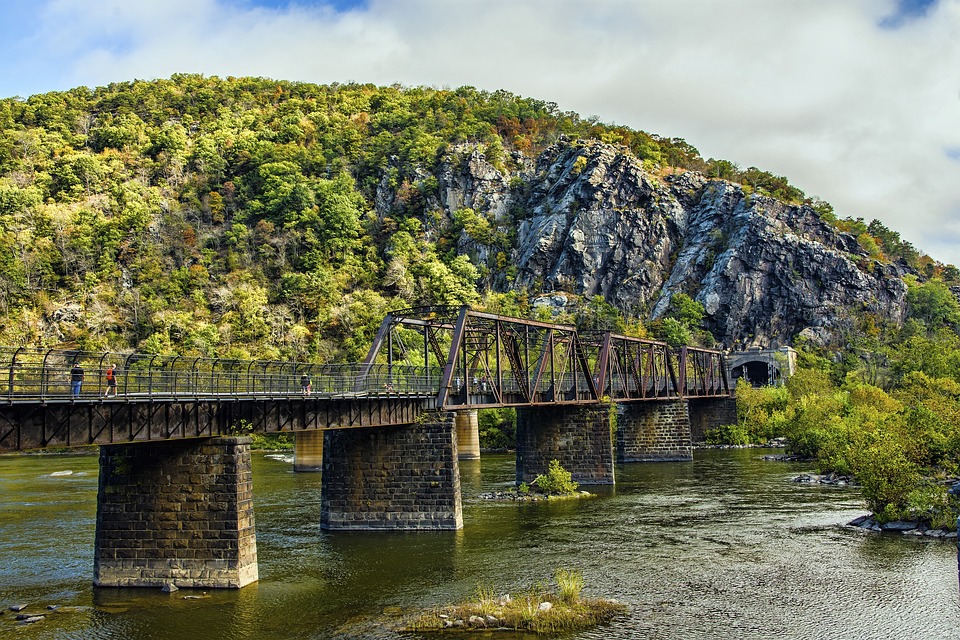
Landmarks
West Virginia is a state full of scenic landscapes and cultural landmarks. Its natural parks, historical sites, and modern attractions draw millions of tourists each year.
Natural Wonders
- New River Gorge National Park
- One of the newest national parks in the U.S., renowned for its iconic bridge, a hotspot for BASE jumping.
- Visitors can enjoy rafting, rock climbing, and hiking along the picturesque canyons.
- Seneca Rocks
- A massive rock formation beloved by climbers.
- Located in the Monongahela National Forest, it’s also a favorite spot for photographers and nature enthusiasts.
- Spruce Knob
- The highest point in the state (1,482 m), offering panoramic views of the Appalachian Mountains.
- Popular among hikers and campers.
Historical Sites
- Harpers Ferry
- A town rich in Civil War history.
- Visitors can explore museums, historic buildings, and trails through stunning scenery.
- Cass Scenic Railroad
- A historic railroad offering steam locomotive rides through mountains and forests.
- A family-friendly attraction.
Modern Attractions
- Greenbrier Resort
- A luxurious resort famous for its Cold War-era bunker.
- Offers golf, spa services, and world-class entertainment.
- Morgantown
- A vibrant college town featuring cultural events, sports activities, and a lively atmosphere.
- Hosts numerous festivals and music concerts.
Traditional Events
- Bridge Day: An annual October festival that gathers thrill-seekers at New River Gorge for BASE jumping.
- Appalachian String Band Music Festival: A musical event celebrating the richness of Appalachian mountain culture.
West Virginia is the perfect destination, combining breathtaking nature, rich history, and modern entertainment.
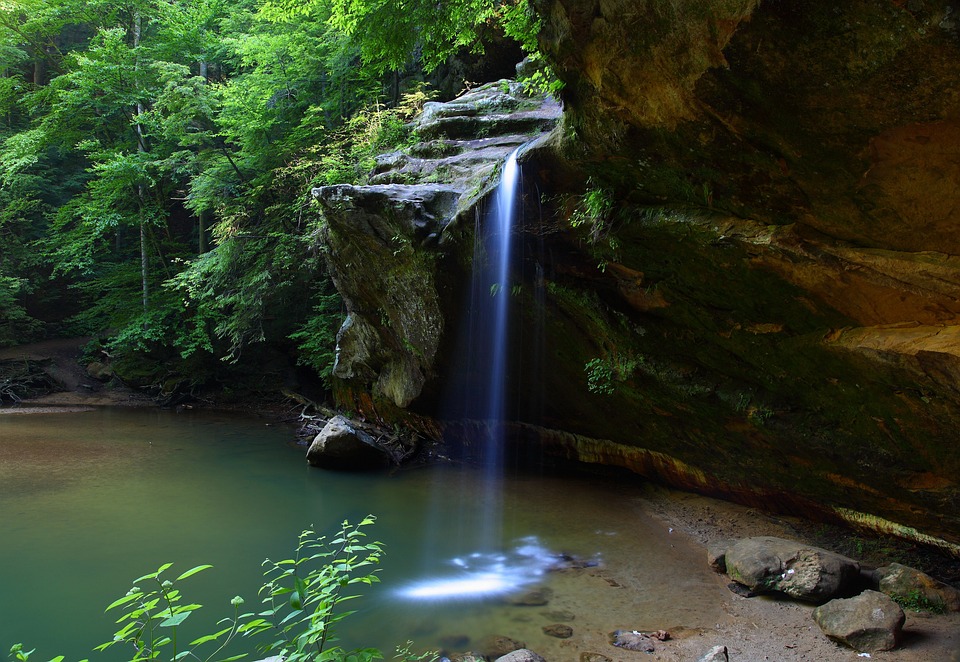
Why People Move to West Virginia
West Virginia attracts people seeking a peaceful and affordable lifestyle surrounded by natural beauty. Thanks to low housing costs, modest taxes, and a relaxed pace of life, the state has become a popular choice for young families, retirees, and even entrepreneurs.
One of the main reasons for relocation is the cost of living, which is significantly lower than in most other U.S. states. Affordable housing, low property taxes, and inexpensive utilities help residents save substantial amounts of money. Additionally, the state’s natural environment offers the chance to live in harmony with nature, enjoying views of mountains, forests, and rivers.
The state also appeals to those looking for a slower pace of life. The absence of big-city stress, friendly local communities, and a more relaxed rhythm allow residents to spend more time with family, hobbies, and leisure. West Virginia is especially suitable for remote workers or small business owners.
Another factor is eco-tourism and opportunities for outdoor activities. Residents have access to numerous hiking trails, camping sites, fishing, and hunting spots, making it a haven for nature enthusiasts and those leading an active lifestyle.
However, there are some challenges. The job market is limited, particularly for skilled professions. Many young people leave the state in search of better opportunities. Infrastructure in some rural areas needs improvement, and the mountainous terrain can complicate transportation links.
Despite these challenges, West Virginia is an ideal choice for those who want to escape the hustle of big cities and enjoy a high-quality, tranquil life in a natural setting.
What Else Should You Know About Living Here and for Newcomers?
Moving to West Virginia can be a delightful experience if you learn a few interesting facts, local laws, and lifestyle features that set this state apart.
Fun Facts:
- Tradition of Hospitality: Locals are famous for their friendliness and willingness to help. In small towns and rural areas, newcomers are often warmly welcomed, and neighbors quickly become friends.
- “Wild and Wonderful” Nature: The state’s motto, “Wild and Wonderful,” truly reflects its character. Residents frequently spend weekends outdoors as it’s an integral part of their lifestyle.
- Community Spirit: In West Virginia, being part of the local community is essential. Volunteering at charity events or participating in local celebrations is common.
Interesting Laws and Rules:
- No Whistling Underwater: An old state law prohibits whistling underwater. While quirky, it’s a tradition inherited from the past.
- Restrictions on Sunday Hunting: In many areas, hunting is prohibited on Sundays, allowing residents to enjoy nature without safety concerns.
- Alcohol Restrictions: West Virginia enforces strict alcohol sales regulations. In many counties, alcohol can only be purchased during certain hours or not at all on Sundays.
Unwritten Rules:
- Respect for Nature: Natural resources are highly valued and protected here. Littering in forests or damaging trees is considered bad manners.
- Greeting Strangers: Even if you don’t know someone, it’s customary to greet them on the street or nod. This is a widespread form of politeness.
- Local Customs: In rural areas, rushing is frowned upon. Locals appreciate a relaxed pace of life, and impatience may be seen negatively.
Tips for Newcomers:
- Winter Preparation: In mountainous areas, snowfalls can be significant, so it’s important to prepare your vehicle and home for the cold season.
- Internet Access: In remote areas, internet connectivity can be unreliable or expensive. If you work remotely, verify this before moving.
- Driving Skills: Due to the mountainous terrain, many roads are winding and narrow, making confident driving skills essential.
Table of Contents